Drawn by the extravagant breakdance being performed outside our sitting room window by the unidentified peach rose, clearly far more resilient than plastic greenhouses, I ventured outside into the wild, weirdly warming, winds with my camera.
The rose surged backwards and forwards, defying my efforts at focussing;
those in their dedicated garden, where Summertime still has a presence, were more sheltered.
Margaret Merrill, lives up to her top autumn rose billing,
and carpet rose Kent rivals the fallen beech leaves for ground cover.
With a warning of frost and maybe snow in a week’s time, it was probably apt that the batch of colour slides from December 1976 should contain snow scenes. That was a very cold winter following an extremely hot summer.
Jessica, Michael and I were staying with her parents in their beamed and thatched house in Wootton Rivers, Wiltshire.
Mark Pearson, who, had he lived, would have been my father-in-law stands here in front of his home.
The snow was not deep at this time, but there was enough to turn simple ironwork into bejewelled necklaces;
to transform branches of trees into festive yule logs;
and ploughed fields, along which Jessica and Michel walk, into scenic Christmas cake icing.
Piper joins them in this picture. The boy to the left could be Jessica’s nephew, Tim Draper.
Here, Michael trudges on after the others.
We had, then unbeknown to me, found ourselves atop West Kennet Long Barrow.
The West Kennet Long Barrow is a prehistoric burial mound near Avebury. It is one of the largest and best-preserved monuments of its kind in Britain. Only the East Kennet Barrow is longer than this one’s 100 meters. Although we did not do so, visitors,can enter the barrow and explore five empty stone chambers in which humans were buried from 3700 to 2000 BC.
In all, the bones of about 46 individuals have been found in the chambers of the barrow. It appears that bodies were buried in social groups: the west chamber was mainly for adult males; the northeast and northwest chambers for mixed adults; the southeast for the old and the southwest chamber for children.
The tombs contained numerous grave goods, including pottery of various kinds (fragments of 250 different vessels were discovered); beads made of bone, stone and shells; flint tools; and animal bones. The pottery spans a long range of time, from the Earlier to Late Neolithic periods.
I didn’t know the amount of history that lay beneath us.
This evening we dined on the last of the shepherd’s pie; extra mashed potato, a steamed cauliflower and Brussel’s sprouts, all flavour retained. Apple and raisin cake with cream was to follow.
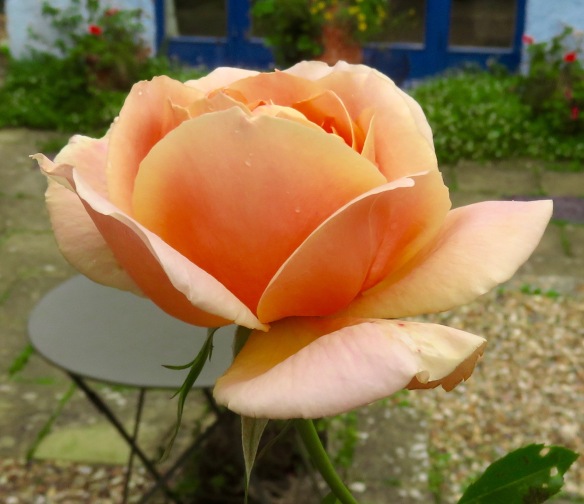

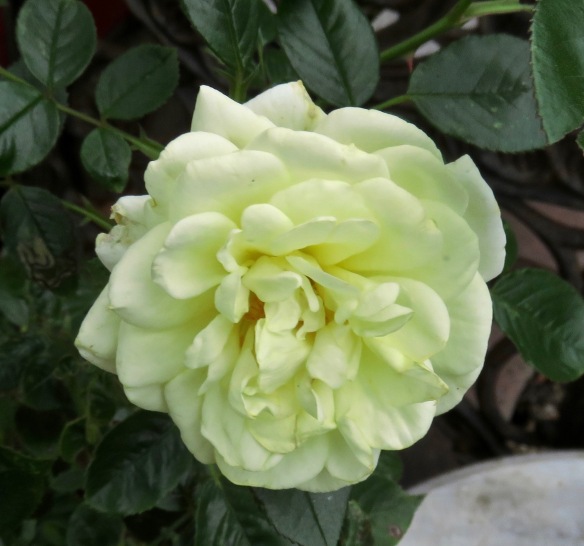


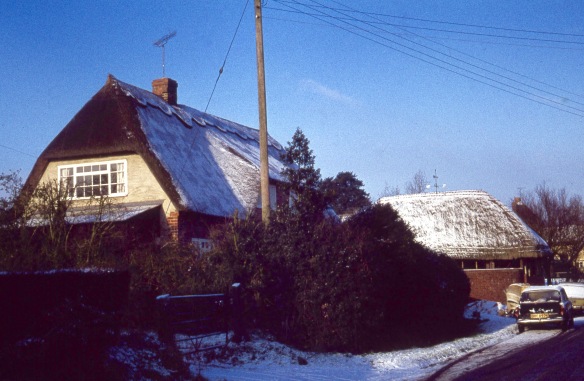
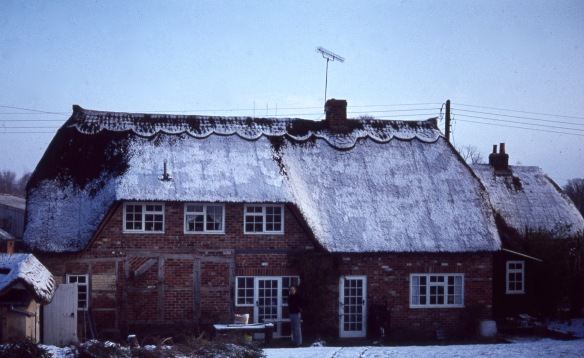

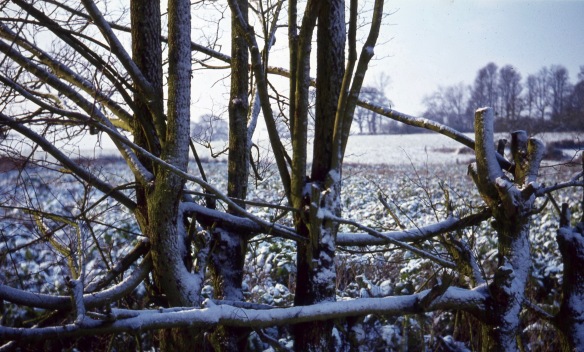
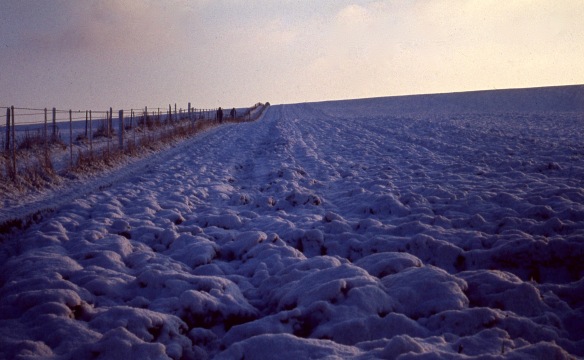
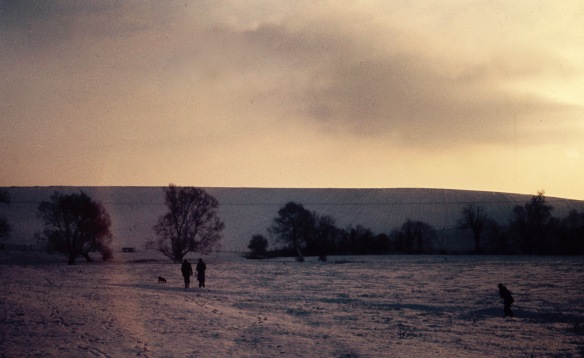
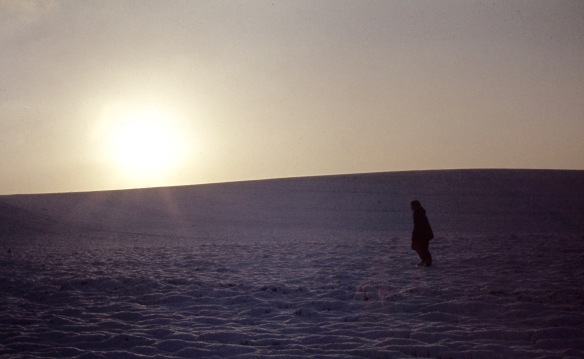
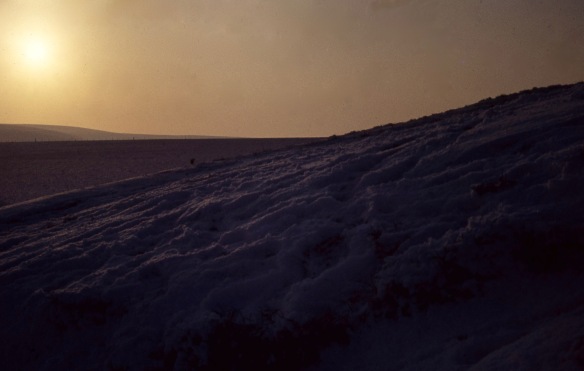
Beautiful photos, Derrick.
Thank you, Ann
Great pictures, Derrick.
[off topic – I have the name Barrow in my family history, is it considered English or Irish, do you know?]
It’s Old English, GP. Thank you for comment
Thank you very much!
You “had” me with roses, barns, snow, and sunny skies. 🙂 Lively photos and post, Derrick.
Many thanks, Robin
I’m so glad you are enjoying roses in November; I hope you won’t get snow (unless you’re looking forward to it, of course). One day someone will excavate this plot and find my collection of rocks from all over the world and the wonky pots and sculptures that I’ve made. However, I don’ t think our council would allow me to be buried in my yard.
Thank you, Mary. It’s funny to think of someone digging up your plot in a few hundred years time and finding you; and I don’t relish the idea of snow
It’s a sad day for industry standards when a rose can withstand the battering of winds that a ‘greenhouse’ cannot! Isn’t history a marvelous thing though – just imagine the different lives that were lived for the folk buried in the barrow and the generations who lived in the thatched cottage!
So true, Pauline. Both threads. Thank you
“… generations have trod, have trod, have trod” – as G.M. Hopkins wrote. That’s something you have in England that we don’t have here. Every time you dig it’s been dug before! It makes things wonderful (in my opinion). Over here, even the Polynesian habitation is quite recent. There’s not the same feeling of generations … you can still be the first to dig! It’s not part of an ancestral thread!
We are lucky, Bruce. Thank you
Nice to watch winter, always romantic, from a distance. Great flowers photos. Thank you Derrick 🙂
Thank you, Sylvie
That peach rose is to die for. I’m crazy for the peach+yellow.
Visiting a real barrow is on my bucket list. I am awed that these were so well preserved as to be able to find remains of humans and objects inside. I get super excited about early human remains. Guess it’s a side-effect of studying anthropology, even though I did not specialize in Archaeology.
Thank you Crystal. There’s quite a lot on Google about this one, including internal photos
Ok, I guess I will have to go check it out.
Roses and snow. Wow! Good combination for your post Derrick 🙂 I love it!
Thank you, Monica
The peach rose and the Margaret Merrill…Mmmmmm, bet they smell good too.
Thank you, Lisa. They do
The barrow seems quite interesting, I wonder what hides right under my feet now. Nice pictures you took there.
– Lashaan
Thank you Lashaan
Having to be “unidentified,” among all those glorious others with beautiful famous names maybe gives that feisty peach rose her spunk and ambition….so lovely!
Many thanks, Cynthia. She is of a certain age and still glorious
Beautiful
Thank you, Nina
Oh, that sunset-colored rose. What a gift. <3
Thank you Ashley. It was here when we came, and has now flowered three times this year.
I wish I had been there – on that walk.
Thank you, Claire Marie
Love all the photos
Thank you, Sol
The opening peach rose is an amazing specimen, too bad this beauty doesn’t have a name. She looks like “Peach Heaven” to me.
Thank you Mary. She’s certainly a peach
What lovely pictures. I love the house.
Thank you, Micheline. The house has quite some age
Beautiful photos and the Barrow sounds fascinating.
Thank you, Dancing Echoes. Your reading and comments appreciated